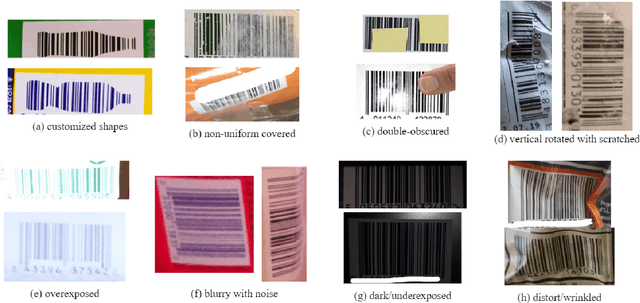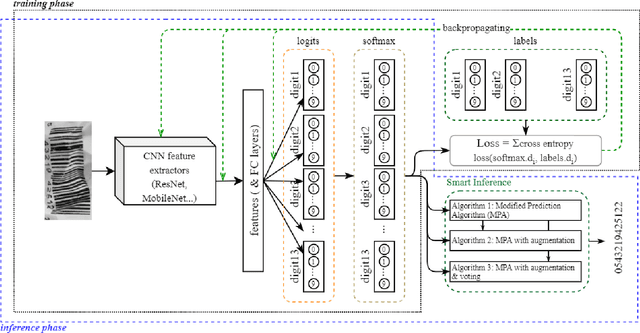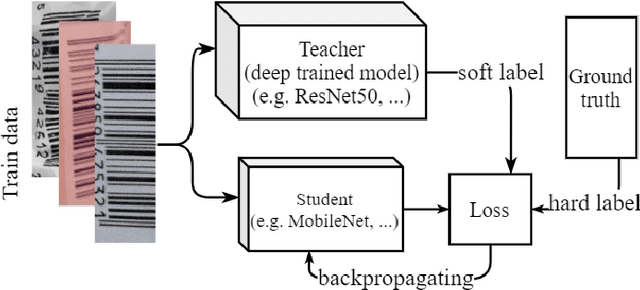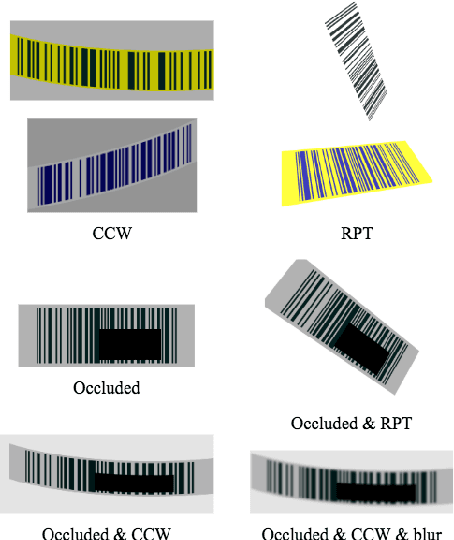Smart Inference for Multidigit Convolutional Neural Network based Barcode Decoding
Paper and Code
Apr 14, 2020



Barcodes are ubiquitous and have been used in most of critical daily activities for decades. However, most of traditional decoders require well-founded barcode under a relatively standard condition. While wilder conditioned barcodes such as underexposed, occluded, blurry, wrinkled and rotated are commonly captured in reality, those traditional decoders show weakness of recognizing. Several works attempted to solve those challenging barcodes, but many limitations still exist. This work aims to solve the decoding problem using deep convolutional neural network with the possibility of running on portable devices. Firstly, we proposed a special modification of inference based on the feature of having checksum and test-time augmentation, named as Smart Inference (SI) in prediction phase of a trained model. SI considerably boosts accuracy and reduces the false prediction for trained models. Secondly, we have created a large practical evaluation dataset of real captured 1D barcode under various challenging conditions to test our methods vigorously, which is publicly available for other researchers. The experiments' results demonstrated the SI effectiveness with the highest accuracy of 95.85% which outperformed many existing decoders on the evaluation set. Finally, we successfully minimized the best model by knowledge distillation to a shallow model which is shown to have high accuracy (90.85%) with good inference speed of 34.2 ms per image on a real edge device.
 Add to Chrome
Add to Chrome Add to Firefox
Add to Firefox Add to Edge
Add to Edge